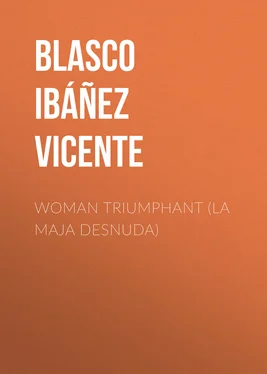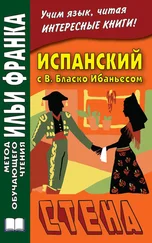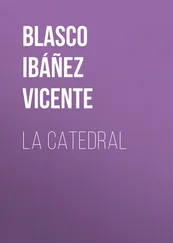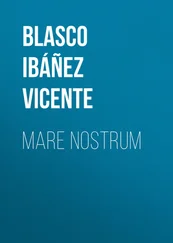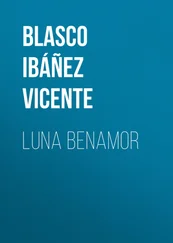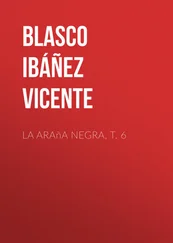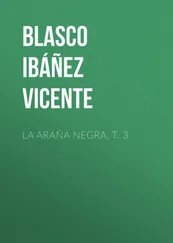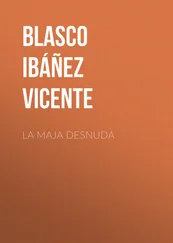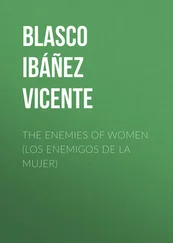Vicente Blasco Ibáñez - Woman Triumphant (La Maja Desnuda)
Здесь есть возможность читать онлайн «Vicente Blasco Ibáñez - Woman Triumphant (La Maja Desnuda)» — ознакомительный отрывок электронной книги совершенно бесплатно, а после прочтения отрывка купить полную версию. В некоторых случаях можно слушать аудио, скачать через торрент в формате fb2 и присутствует краткое содержание. Жанр: foreign_prose, foreign_antique, на английском языке. Описание произведения, (предисловие) а так же отзывы посетителей доступны на портале библиотеки ЛибКат.
- Название:Woman Triumphant (La Maja Desnuda)
- Автор:
- Жанр:
- Год:неизвестен
- ISBN:нет данных
- Рейтинг книги:5 / 5. Голосов: 1
-
Избранное:Добавить в избранное
- Отзывы:
-
Ваша оценка:
- 100
- 1
- 2
- 3
- 4
- 5
Woman Triumphant (La Maja Desnuda): краткое содержание, описание и аннотация
Предлагаем к чтению аннотацию, описание, краткое содержание или предисловие (зависит от того, что написал сам автор книги «Woman Triumphant (La Maja Desnuda)»). Если вы не нашли необходимую информацию о книге — напишите в комментариях, мы постараемся отыскать её.
Woman Triumphant (La Maja Desnuda) — читать онлайн ознакомительный отрывок
Ниже представлен текст книги, разбитый по страницам. Система сохранения места последней прочитанной страницы, позволяет с удобством читать онлайн бесплатно книгу «Woman Triumphant (La Maja Desnuda)», без необходимости каждый раз заново искать на чём Вы остановились. Поставьте закладку, и сможете в любой момент перейти на страницу, на которой закончили чтение.
Интервал:
Закладка:
The model continued in his mystic attitude with his body lost in the innumerable folds of his blue and white raiment, while under it the square toes of his army boots stuck out, and he held up his grotesque, flat head, crowned with bristling hair, coughing and choking from the smoke of the cigar, without ceasing to look up and without separating his hands clasped in an attitude of worship.
Sometimes, tired out by the industrious silence of the master and the pupil, Rodríguez uttered a few grumbles that little by little took the form of words and finally developed into the story of the deeds of his heroic period, when he was a rural policeman and "could take a shot at anyone and pay for it afterward with a report." The Purísima grew excited at these memories. His hands separated with a tremble of murderous joy, the carefully arranged folds were disturbed, his bloodshot eyes no longer looked heavenward, and with a hoarse voice he told of tremendous beatings he administered, of men who fell to the ground writhing with pain, the shooting of prisoners which afterwards were reported as attempts to escape; and to give greater relief to this autobiography which he declaimed with bestial pride, he sprinkled his words with interjections as vulgar as they were lacking in respect for the first personages of the heavenly court.
"Rodríguez, Rodríguez!" exclaimed the master, horror-stricken.
"At your command, Don Rafael."
And the Purísima , after passing the stub from one side of his mouth to the other, once more folded his hands, straightened up, showing his red-striped trousers under the tunic, and lost his gaze on high, smiling with ecstasy, as if he contemplated on the ceiling all his heroic deeds of which he felt so proud.
Mariano was in despair before his canvas. He could never imitate his illustrious master. He was incapable of painting anything but what he saw, and his brush, after reproducing the blue and white raiment, stopped, hesitating at the face, calling in vain on imagination. After futile efforts it was the grotesque mask of Rodríguez that appeared on the canvas.
And the pupil had a sincere admiration for the ability of Don Rafael, for that pale head veiled in the light of its halo, a pretty, expressionless face of childish beauty, which took the place of the policeman's fierce head in the picture.
This sleight-of-hand seemed to the boy the most astounding evidence of art. When would he reach the easy prestidigitation of his master!
With time the difference between Don Rafael and his pupil became more marked. At school his comrades gathered around him, recognizing his superiority and praising his drawings. Some professors, enemies of his master, lamented that such talent should be lost beside that "saint-painter." Don Rafael was surprised at what Mariano did outside of his studio—figures and landscapes, directly observed which, according to him, breathed the brutality of life.
His circle of serious gentlemen began to discover some merit in the pupil.
"He will never reach your height, Don Rafael," they said. "He lacks unction, he has no idealism, he will never paint a good Virgin—but as a worldly painter he has a future."
The master, who loved the boy for his submissive nature and the purity of his habits, tried in vain to make him follow the right way. If he would only imitate him, his fortune was made. He would die without a successor and his studio and his fame would be his. The boy only had to see how, little by little, like a good ant of the Lord, the master had gathered together a fair sized future with his brush. By virtue of his idealism, he had his country house there in the village, and no end of estates, the tenants of which came and visited him in his studio, carrying on endless discussions over the payment and amount of the rents in front of the poetic Virgins. The Church was poor because of the impiety of the times, it could not pay as generously as in other centuries, but commissions were numerous, and a Virgin in all her purity was a matter of only three days—but young Renovales made a troubled, wry face, as if a painful sacrifice were demanded of him.
"I can't, Master. I'm an idiot. I don't know how to invent things. I paint only what I see."
And when he began to see naked bodies in the so-called "life" class he devoted himself zealously to this study, as if the flesh caused in him the most violent intoxication. Don Rafael was appalled by finding in the corners of his house sketches that portrayed shameful nudes in all their reality. Besides, the progress of his pupil caused him some uneasiness; he saw in his painting a vigor that he himself had never had. He even noted some falling-off in his circle of admirers. The good canons, as always, admired his Virgins, but some of them had their portraits painted by Mariano, praising the skill of his brush.
One day he said to his pupil, firmly:
"You know that I love you as I would a son, Mariano, but you are wasting your time with me. I cannot teach you anything. Your place is somewhere else. I thought you might go to Madrid. There you will find men of your stamp."
His mother was dead; his father was still in the blacksmith shop, and when he saw him come home with several duros, the pay for portraits he had made, he looked on this sum as a fortune. It did not seem possible that anyone would give money in exchange for colors. A letter from Don Rafael convinced him. Since that wise gentleman advised that his son should go to Madrid, he must agree.
"Go to Madrid, my boy, and try to make money soon, for your father is old and will not always be able to help you."
At the age of sixteen, Renovales landed in Madrid and finding himself alone, with only his wishes for his guide, devoted himself zealously to his work. He spent the morning in the Museo del Prado, copying all the heads in Velásquez's pictures. He felt that till then he had been blind. Besides, he worked in an attic studio with some other companions and evenings painted water-colors. By selling these and some copies, he managed to eke out the small allowance his father sent him.
He recalled with a sort of homesickness those years of poverty, of real misery, the cold nights in his wretched bed, the irritating meals—Heaven knows what was in them—eaten in a bar-room near the Teatro Real; the discussions in the corner of a café, under the hostile glances of the waiters who were provoked that a dozen long-haired youths should occupy several tables and order all together only three coffees and many bottles of water.
The light-hearted young fellows stood their misery without difficulty and, to make up for it, what a fill of fancies they had, what a glorious feast of hopes! A new discovery every day. Renovales ran through the realm of art like a wild colt, seeing new horizons spreading out before him, and his career caused an outburst of scandal that amounted to premature celebrity. The old men said that he was the only boy who "had the stuff in him"; his comrades declared that he was a "real painter," and in their iconoclastic enthusiasm compared his inexperienced works with those of the recognized old masters—"poor humdrum artists" on whose bald pates they felt obliged to vent their spleen in order to show the superiority of the younger generation.
Renovales' candidacy for the fellowship at Rome caused a veritable revolution. The younger set, who swore by him and considered him their illustrious captain, broke out in threats, fearful lest the "old boys" should sacrifice their idol.
When at last his manifest superiority won him the fellowship, there were banquets in his honor, articles in the papers, his picture was published in the illustrated magazines, and even the old blacksmith made a trip to Madrid, to breathe with tearful emotion part of the incense that was burned for his son.
Читать дальшеИнтервал:
Закладка:
Похожие книги на «Woman Triumphant (La Maja Desnuda)»
Представляем Вашему вниманию похожие книги на «Woman Triumphant (La Maja Desnuda)» списком для выбора. Мы отобрали схожую по названию и смыслу литературу в надежде предоставить читателям больше вариантов отыскать новые, интересные, ещё непрочитанные произведения.
Обсуждение, отзывы о книге «Woman Triumphant (La Maja Desnuda)» и просто собственные мнения читателей. Оставьте ваши комментарии, напишите, что Вы думаете о произведении, его смысле или главных героях. Укажите что конкретно понравилось, а что нет, и почему Вы так считаете.
